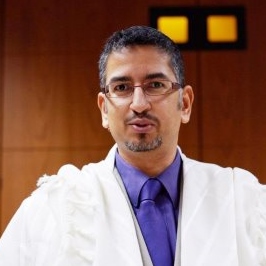Religion
Vayikra – a world in Divine harmony and order
This Shabbat we start with the reading of the third book of the Torah. The book has very different names in different traditions. Often we say “Leviticus” or “Torat Kohanim – The Teaching of the Priests” as most of its laws are connected to the temple service.

RABBI ADRIAN M SCHELL, BET DAVID
Today in the Jewish world, it is common to refer to this book as “Vayikra – And He called”, according to its very first word in the Hebrew.
The title “Vayikra” is the better choice for another reason: Leviticus or Torat Kohanim could be misleading; they could give the impression that its content is only dealing with a group of selected people like the Levites and the Kohanim.
But, the opposite is the case: Vayikra is important for all of us.
Vayikra presents to us the concept of a world in Divine harmony and order. To maintain this order, the Torah explains in detail what someone should do when a boundary has been violated.
This can be something affecting ourselves and our bodies, or boundaries in time and space. In other words, boundaries between the sacred and the profane, or between life and death. The book describes that anyone, who has violated G-d’s order and harmony, can also restore it, or even has an obligation to restore it.
The image Vayikra is drawing for us is that the body of a person as well as the sanctuary (tabernacle) and the society itself, are own little sacred worlds themselves. Each world represents the great whole, and each world has an impact on what happens around it.
This means that purity and holiness are not only limited to the temple or the synagogue, it also includes our entire life, our bodies, our homes, our interactions with other humans and with nature. There are several facets in everything, profane and sacred ones alike.
Because our bodies and our lives are holy, we find in the book Vayikra regulations on “food”, “relationships” and “ethics” in order to protect this holiness.
The book contains not only instructions for the priests and the temple cult, but also, how we should interact with our neighbours and about sexuality. Even though priests may have a special role, the text makes clear that all Israelites are meant to be holy, because G-d is holy and we are G-d’s people.
One of the major themes of the book Vayikra is to form the Israelites, to form us Jews, to a sacred, a holy nation, that is an ethical nation, a kingdom of priests. When we read the text, we can discover how we can draw meaning out of it for our lives and how we can contribute to the healing, the repair of the world – tikkun olam.
“Am Kadosh” – a holy nation – has often been misunderstood. It is not an elevation above other people, our fellowmen or nature; it marks a special attribute in our relationship to G-d. We are partners with G-d in the ongoing process to keep this world in balance, in its Divine order